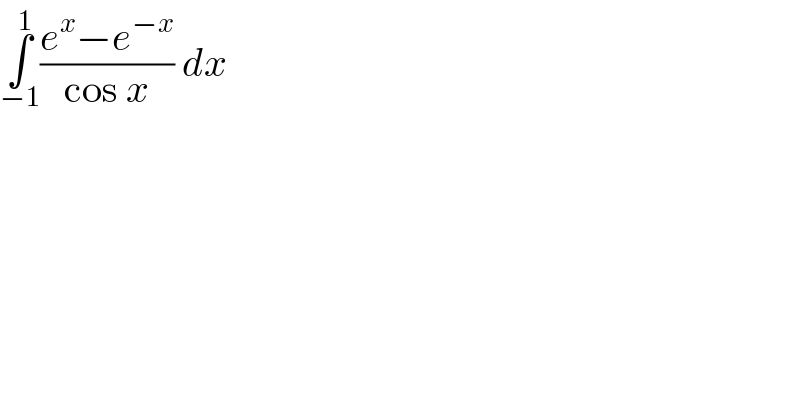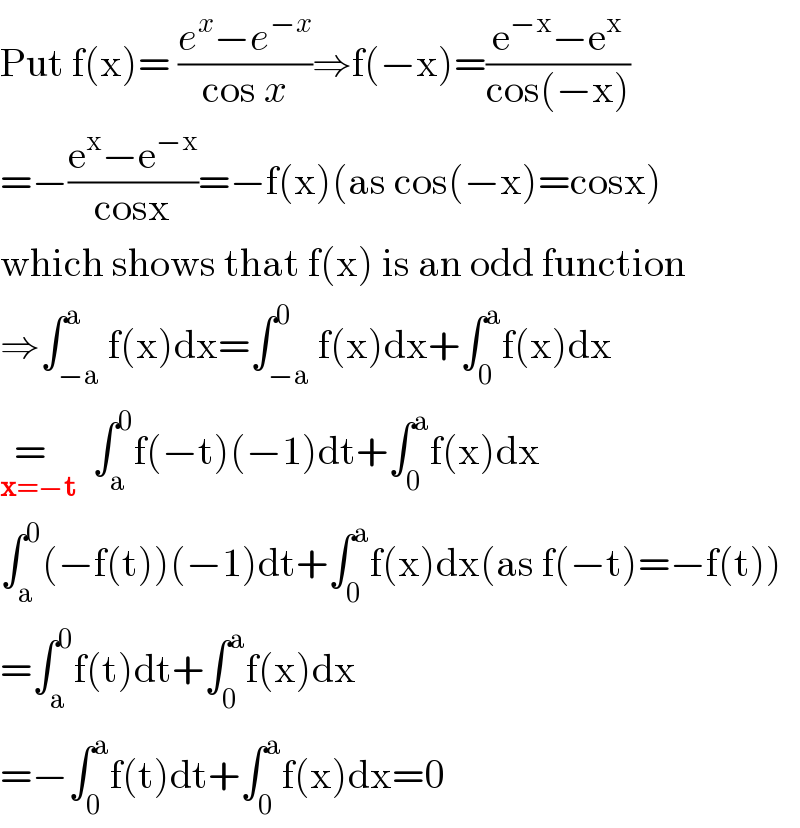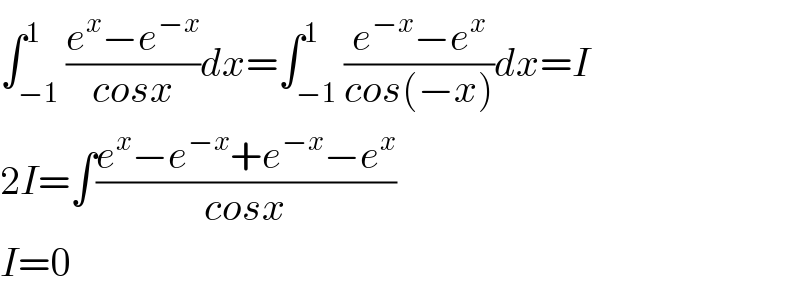
Question and Answers Forum
Question Number 105455 by john santu last updated on 29/Jul/20

Answered by 1549442205PVT last updated on 29/Jul/20

Answered by Dwaipayan Shikari last updated on 29/Jul/20

Answered by mathmax by abdo last updated on 29/Jul/20

